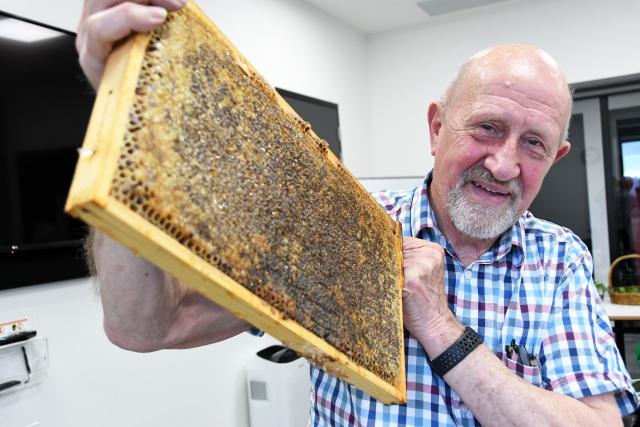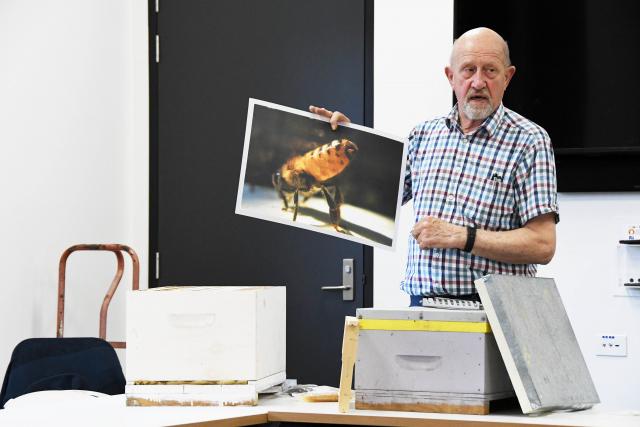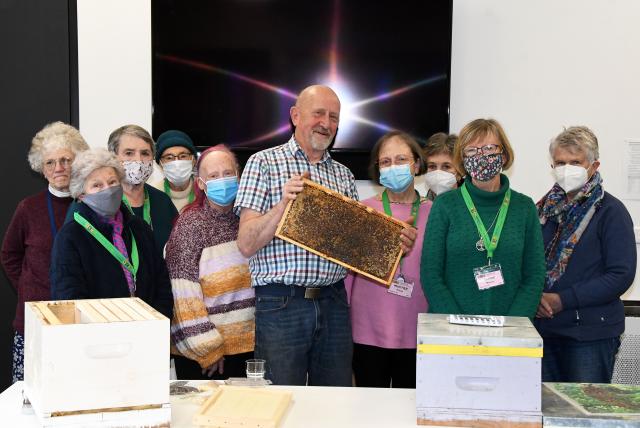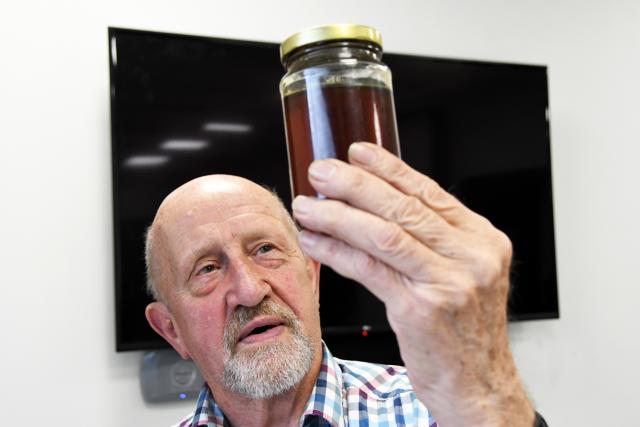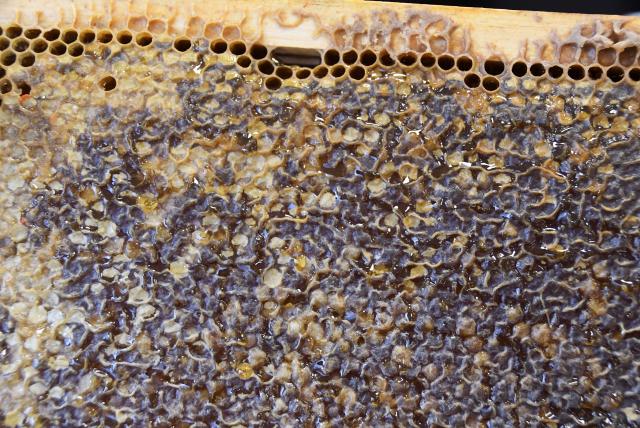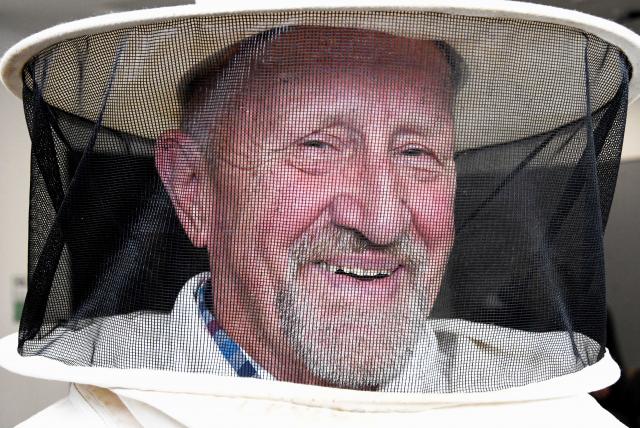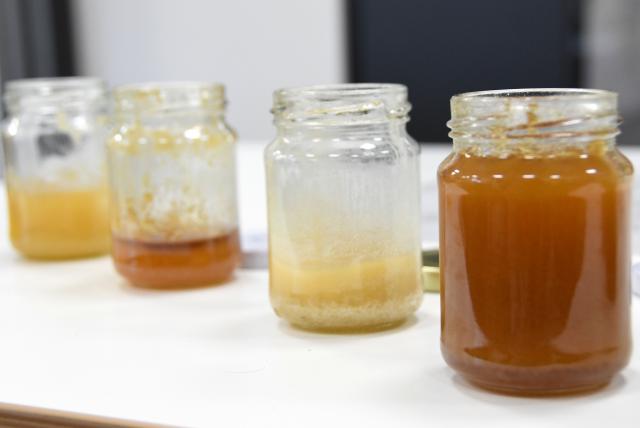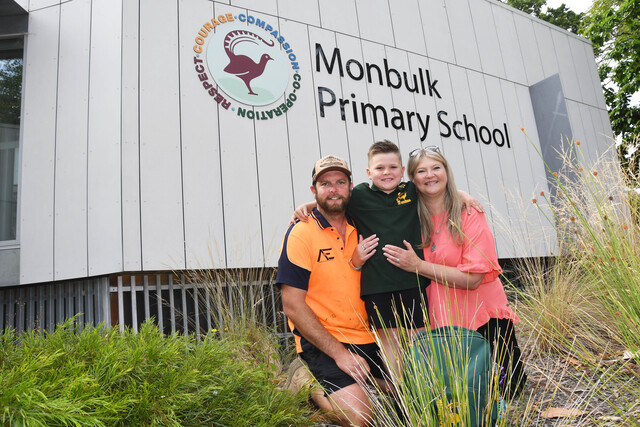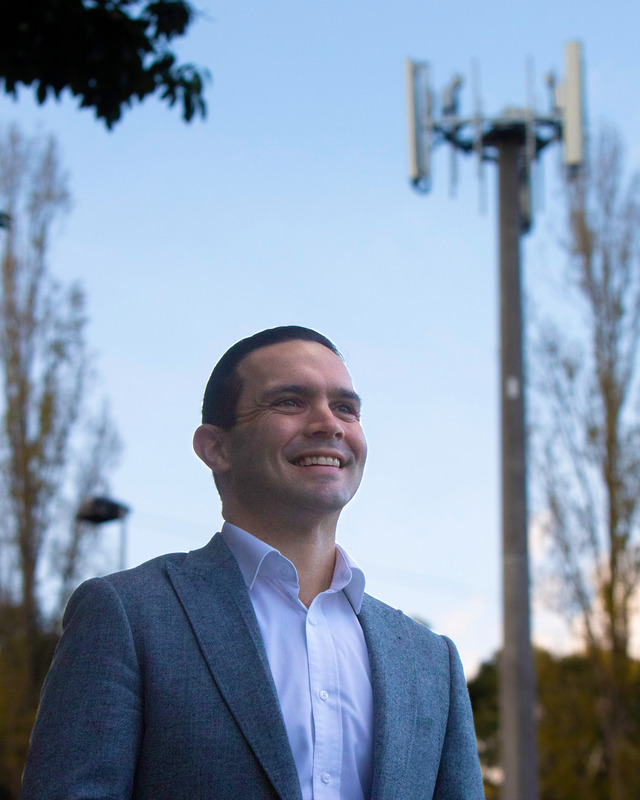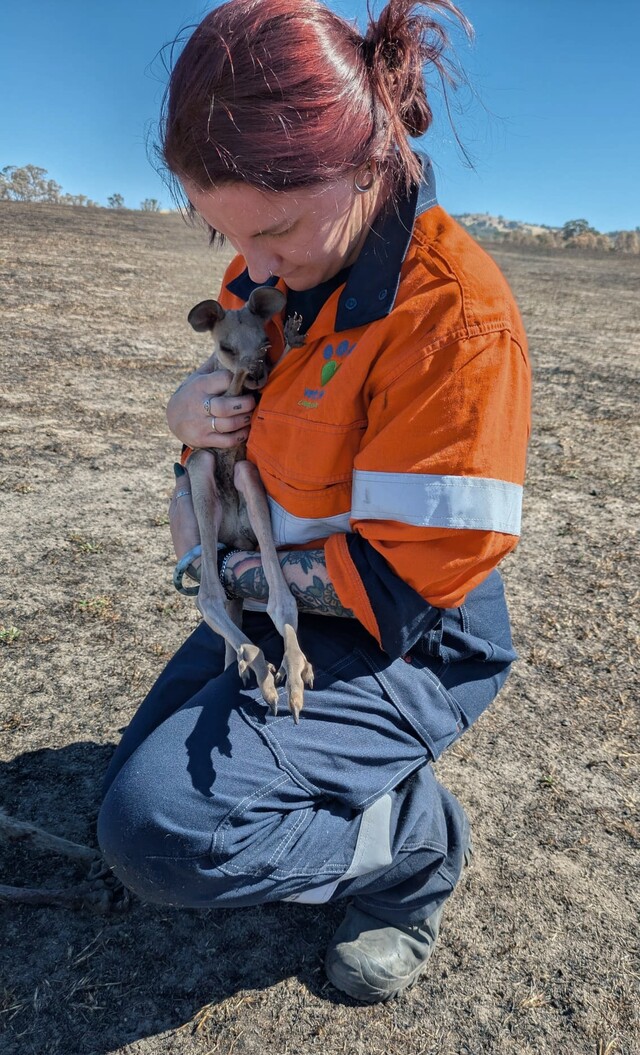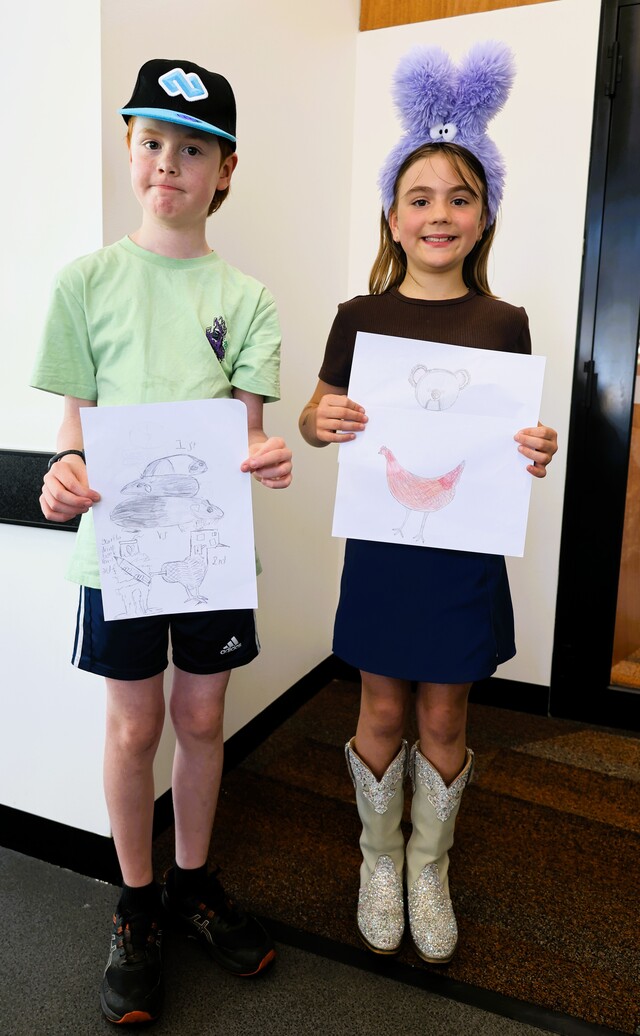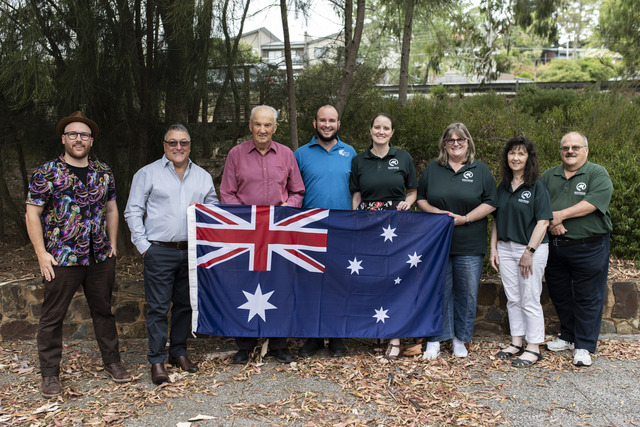Anyone can become a beekeeper, according to Macclesfield’s Greg Huggins.
Greg is a member of the Emerald Regional Beekeeping Club, which helps educate and skill up locals interested in the hobby, most recently holding a demonstration for the Emerald U3A Gardening Club at the Emerald Hills Hub.
Greg considers himself a fairly new beekeeper, having taken up the hobby 10 years ago.
The response he got from wife Helen when he brought up the idea was along the lines of “over my dead body”, he recalled.
“But now Helen is a qualified beekeeper so it’s one of the few victories I’ve had,” Greg said.
Initially, Greg wasn’t thinking about collecting honey.
“I just wanted some bees around so I could grow veggies and have them pollinated,” Greg said.
Greg said on his property in Macclesfield, he very rarely saw bees.
So after being retrenched, Greg started researching about bees and beekeeping.
“I wasn’t going to be one of those sit at home types watching TV,” he said.
That’s when his bee obsession began.
“The first year I had bees I had two pumpkin vines. Because the bees fertilised every female flower, that season I had 42 pumpkins,” Greg said.
“I must confess it was an absolutely outstanding success.
“My neighbours thought I was nuts or stealing them.”
To help keep his bees happy, Greg said he has planted flowering shrubs like lavender, grevilleas and callistemon, but they aren’t the bee’s main source of food.
“Bees will forage three or four kilometres quite comfortably,” he said.
“I live near a creek so there generally tends to be a good floral source all times of the year.”
To help attract bees to your garden, Greg recommended planting open flowers.
“The flowers where you have the centre filled with pollen which is easily visible and accessible,” Greg said.
“Anything from sunflowers down to your small daisies is bee heaven. As long as they are simple flowers.
“Compound flowers like double camellias, the bees just can’t get in there. So they will bypass that for something easier.”
Greg said to be a successful beekeeper, and not be stung too often, you have to be kind and patient.
“Beekeeping is a form of mindfulness,” Greg said.
“These are such sensitive creatures. And I can vouch for this by experience.
“If you’re in a bit of a rush or a bother, they will know and they will give you curry in more way than one if you rattle and shove them.”
Greg uses just small amounts of smoke to calm his bees.
“I always equate using a smoker to us in the hills. Let’s imagine you step outside. And you smell smoke? What’s your first thought? There’s a fire,” Greg said.
“That’s what smoke does for bees. It distracts them because fire is their enemy. It can destroy the hive and all the bees. So the first thought for the bees is ‘do we have to get some? What’s going on? What can I take with us?’ All of that stuff is what happens when bees smell smoke.
“I’ve seen beekeepers absolutely cloud a hive with so much smoke they can hardly see anything- that’s overkill. So I try to be gentle with your bees is because I tend to be rather fanatical about being gentle and kind and thoughtful about the bees.”
Getting stung is painful, so that is why beekeepers have suits to protect them.
Why do bees go for your face first?
“Bees have been around in the current form for about 125 million years, give or take a few million,” Greg said.
“So over that time, they have been subjected to bears and all other sorts of critters that want to get inside the hive to get the good honey stuff.
“So bees have now over these millions of years have worked out that anything dark and about this high is a bear, is an enemy or a potential enemy.”
Bears have really thick fur coats so the only place that a bee can make a bear go away is stinging around the eyes.
“That’s why the bees will come around the face trying to get your eyes because they know that will make it go away,” Greg said.
Greg is a leading member of the Emerald Regional Beekeeping Club.
The club has around 50 members and hosts talks and workshops to share information and tips on keeping bees.
They meet on the second Tuesday of the month at the Emerald Hills Hub at 7.30pm.
Anyone interested in starting beekeeping is encouraged to reach out via emerald.bee.club@gmail.com.
Greg also offers bee rescuing for swarms.

